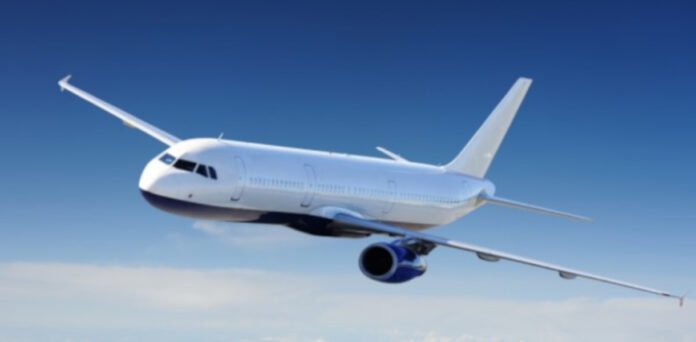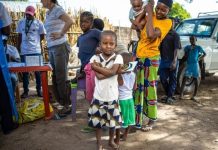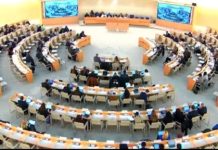By Abdouai G. Dibba
Gambia Government in collaboration with the Senegalese Government in March 2020 closed its air space, sea and land borders in a bid to curb the spread of COVID 19. This decision by the two states came in the wake of the confirmation of the first case of COVID 19 on 17th March 2020.
COVID-19 is a new strain of coronavirus identified in humans and it was first detected in Wuhan, Hubei province of China in December 2019, since then cases have been identified in a number of countries.
As a result, the Gambia Government came up with regulations restricting travel of officials in order to curb the spread of the disease.
The National Assembly in December 2019 approved D275, 000,000 (Two hundred and seventy-five million Dalasi) for travel expenses of which the ministry of finance quarterly reports on government expenditure indicated D97, 193,140 (Ninety-seven million, one hundred and ninety-three thousand, one hundred and forty Dalasi) has been spent between January and June 2020.
The Directorate of Budget and the National Assembly Select Committee on Agriculture have been approached to clarify what happened to the Ministry’s travel Expenses.
However, according to the Directorate of budget, the requester of the information should write to the Permanent Secretary Ministry of Finance and Economic Affairs, which has been done and efforts to get feedback proved futile up to the time of going to press.
Hon Lamin J. Sanneh of the National Assembly Select Committee on Agriculture, informed this reporter that their meeting which was slated for Wednesday 14th October 2020 had been cancelled as they were on tour of agricultural project sites.
He, however promised that he would file a parliamentary question pertaining to the share of the Ministry of Agriculture from the D97, 193,140 (ninety-seven million, one hundred and ninety-three thousand, one hundred and forty Dalasi) spent between January and June 2020 and whether the rest of the money was vired as indicated by the Minister of Finance and Economic Affairs or not.
Following the announcement by the Government to cut down travel expenses as a result of the covid 19 pandemic, this reporter approached Nyang Njie an Economist, who said “What we have seen is that Government puts a lot of priority on travel, meaning tickets and per diem etc,”
“2020 had a blotted Budget but fortunately, covid came in at the early days [that is], February and March and this has considerably slowed down travel. So therefore, the monies that were to be spent as travel expenses ended up being vired to other sectors of the economy. That was a good move and thanks to covid, but it was not the discipline of government.”
He added: “So going forward, what has the Gambia learned? We have learned a lesson and the lesson is, business of Government can continue without serious heavy traveling. So can we take our travel pace after covid to the level that we had during covid? If that’s the case, Government would have a lot of money that it can put in other places like health, agriculture and road infrastructure because still business of Government continues on and now we have new technology that has come out, virtual meeting, Zoom and others.”
So the Government needs to look into investing in virtual internet infrastructure that would allow meetings to take place without physical presence, he said.
Njie said equally, the State officials can sign documents from this point and send them within a matter of seconds. So some of these travels, he said, could be reduced since the government continued to do business internationally during these months.
So it should be a lesson learned that “we can continue to reduce the level of travel and civil servants should not see travel as a way to supplement their incomes, but they should see it as a burden on the economy in terms of additional expenditure that could have been used in health, education, agriculture …” or otherwise.
After a critical review of the approved 2020 budget, one would discover under Ministry of Agriculture, an allocation of D7, 000,000 (Seven Million Dalasi) as travel expenses for the year 2020.
However, this allocation is spilt under the following headings:-
Under strategy, policy and management, an amount of D3, 000, 000 (Three Million Dalasi) is allocated for travel expenses in 2020 which is D1, 000, 000 (One Million Dalasi1) less than that of 2019.
Under crop production and productivity, an amount of D2, 500, 000 (Two Million, five hundred thousand Dalasi) was allocated as travel expenses which is half of that of last year.
Under livestock production and productivity, an amount of D1, 500, 000 (One Million, five hundred thousand Dalasi) is allocated as travel expenses for 2020 which is D500, 000 (five hundred thousand Dalasi) less than 2019 allocation.
In total therefore and in line with the Government’s plans to cut down on expenses to curb domestic borrowing, one would realize that under the ministry of Agriculture, D4, 000, 000 (Four million Dalasi) has been cut from the 2019 allocation of D11, 000, 000 (Eleven million Dalasi).
Agriculture, a vital sector in ensuring employment, poverty eradication and food security, is terribly underfunded.
Looking at the global national budget, one would realize that agriculture was only allocated 2.6 percent of the national budget which is far below the 10 percent outlined in the Maputo declaration.
The Minister of Finance and Economic Affairs told the National Assembly on Friday 6th December, 2019 that “annual analysis from National Agriculture Sector Strategy estimates that area under cultivation for the six major cereals[rice, early millet, late millet, maize, sorghum and findo] has been steadily declining from 206,300 hectares in 2018 to 170, 130 hectares in 2019. A similar trend is also being observed for groundnut which is also expected to decline from 79, 923 to 54, 348 hectares in 2019”.
Modou Ceesay a farmer in North Bank Region, said the area under cultivation for six major cereals will continue to steadily decline because “production will decline no matter the [amount of] hectares cultivated due to the infertility of the soil. To boost production, there is a need for fertilizer, good variety seeds and farm implements to ease our drudgery and eradicate late planting”.
To ease our drudgery Mr Ceesay said, they have shifted to the cultivation of cassava and water melon which are more profitable and a market is readily available.
With a total budget of D488, 264, 000 for agriculture, only D42, 500, 000 is allocated for Agriculture inputs while D241, 859, 000 is for salaries and allowances.
Nyang Njie told Foroyaa: “We all noticed one thing in the Gambia, traditional agriculture has been groundnuts as a cash crop.
Groundnuts as the Americans would say, they called it peanut and peanut is nothing”.
Meaning, a farmer would toil for five months of the year and end up having only two tons of yields that when sold would not generate money for his/her subsistence for two to three months.
So what we need to do now, is to focus on high value produce like Cashew, strawberries, flowers and Mangoes that could be exported to Europe.
“That’s the type of Agriculture we need to venture into, high value produce so that our export commodities would have value and farmers growing them, will have high returns for their crops”, he stressed.
The ministry has indicated that developing the horticulture sector is a top priority in order to empower women farmers, however, it is interesting to note that under the Planning Services Unit of the Ministry of Agriculture, an amount of D1, 800, 000 (one million, eight hundred thousand Dalasi) is allocated of which D1, 000, 000 (one million Dalasi) is for Agricultural inputs and D800, 000 (eight hundred thousand Dalasi) is for land leveling and fencing.
This has put a question mark on the commitment to develop horticulture and this is precisely the reason why Economist Nyang Njie asserted that horticulture is one of the most important sectors in our agribusiness, but it needs serious commitment in terms of creating the value chain.
What are the value chains? He asked. Storage, preservation and processing. The government needs to invest heavily on storage facilities because the crops are highly perishable.
Equally he said; “we need to invest heavily on processing and packaging” so that horticulture would not only be sustainable, but it will make a significant impact for the farmers involved in the agribusiness.
Economist Njie stated that the issue of freight and forwarding need to be taken into consideration, meaning having an aircraft that can take fresh vegetables to the European markets on daily and weekly basis.
“So these are the value chains that Government needs to fix to make horticulture a viable business “he said.
Speaking broadly on agriculture, Mr Njie said, he would want to advise the Government of the Gambia to understand that agriculture is a growth driver and agriculture is a game changer for the Gambian economy.
He said what government needs to do and must be cognizant of, is farmers of yesterday are not farmers of today.
He also said Farmers of today don’t want to be peasants, they want to be millionaires.
“So[the] government needs to create a conducive environment for these would be farmers not to be like their parents or grandparents because we have seen farmers who toiled all their lives and they died poor and this is why the number of farmers in Gambia today is shrouding” he stated.
“The government needs to understand that the economic prosperity for the Gambia is banking on farming and agriculture and the economy, but they need to make farming rewarding, productive and worthwhile for any young person who wants to venture in to it” he concluded his advice.




















